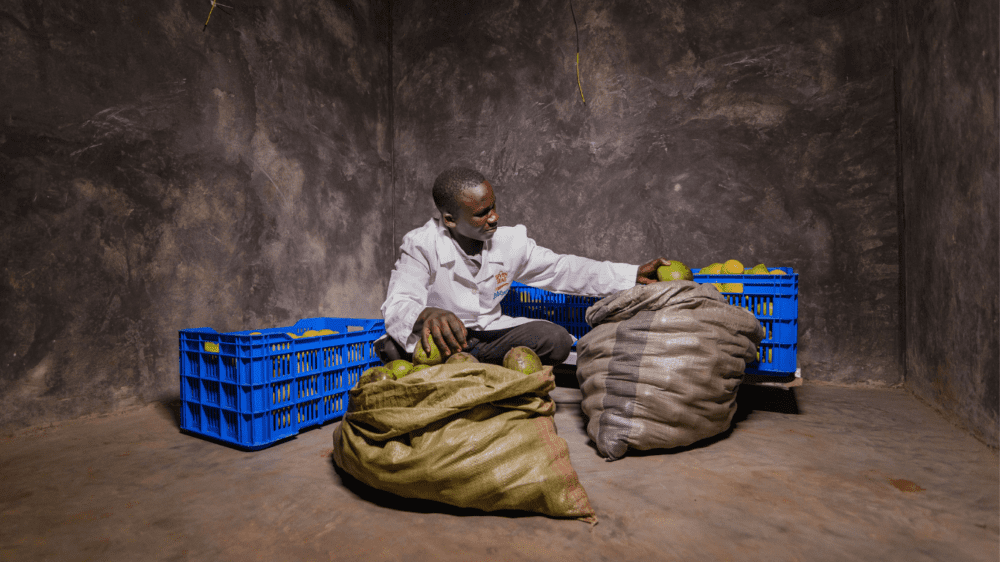Keep it Cool: Harnessing Cold Storage to Reduce Food Loss & Support Sustainable Food Systems in Emerging Economies
This technology trend brief explores the role of cold storage in reducing food loss and enhancing food security, and highlights organisations that are pioneering these efforts.

Download Resources
Cold storage technologies play a crucial role in preserving food freshness, preventing spoilage, and extending shelf life, but it is essential that they do so in an environmentally sustainable manner. This technology trend brief, “Keep it Cool: Harnessing Cold Storage to Reduce Food Loss & Support Sustainable Food Systems in Emerging Economies,” highlights innovative cold chain technologies that are tackling these challenges.
The latest data from the Food and Agriculture Organization (FAO) offers some startling statistics about food loss. Not only is 14% of food lost in the supply chain, food waste also:
- Contributes to 8-10% of global greenhouse gas emissions;
- Squanders a land mass the size of China;
- And has an economic cost of around $1 trillion annually;
However, despite these losses, one in ten people globally remains malnourished. As the population grows and the demand for nutritious food increases, energy-efficient and sustainable cold chain becomes critical to reducing food loss, improving food security, and mitigating climate impact. We need a global paradigm shift towards cold storage technologies that align with international climate agreements.
This brief spotlights three organisations that are working alongside Efficiency for Access at the forefront of this field:
- Wageningen University & Research has developed a postharvest assessment method, which identifies key areas of food loss in the supply chain and suggests interventions to minimize waste. Their research provides valuable guidance for reducing food loss and improving the efficiency of the cold chain.
- Global Food Cold Chain Council is an independent not-for-profit industry organization that seeks to simultaneously reduce food waste, and related greenhouse gas emissions in the processing, transportation, storage, and retail display of cold food by expanding and improving access to energy-efficient low-global warming potential technology.
- Champions 12.3 is a coalition of global leaders who are all committed to supporting SDG12.3 which aims to halve food waste and reduce food loss by 2030. The Champions 12.3 coalition develops and drives a number of initiatives that are targeted at tackling specific issues and problems with the food systems, thereby reducing food loss and waste.